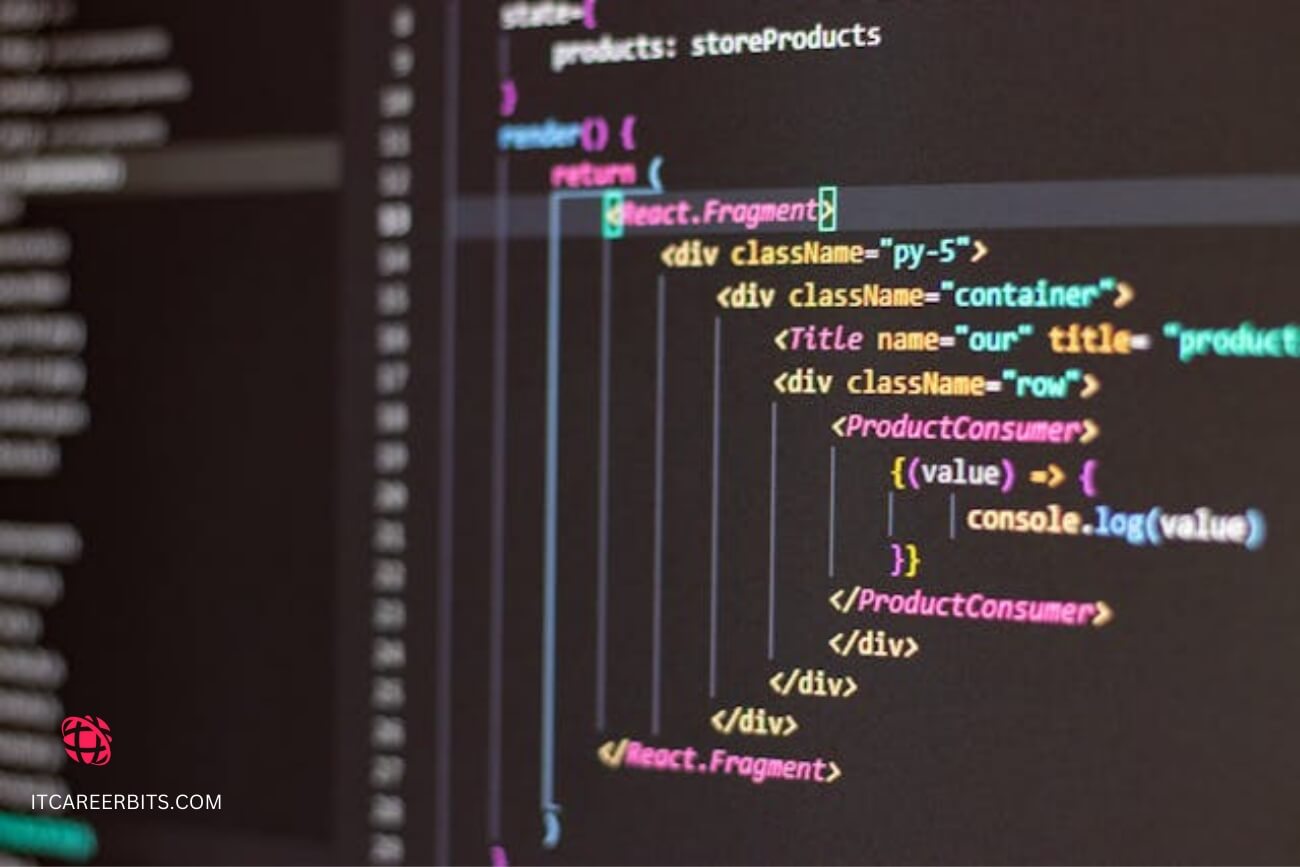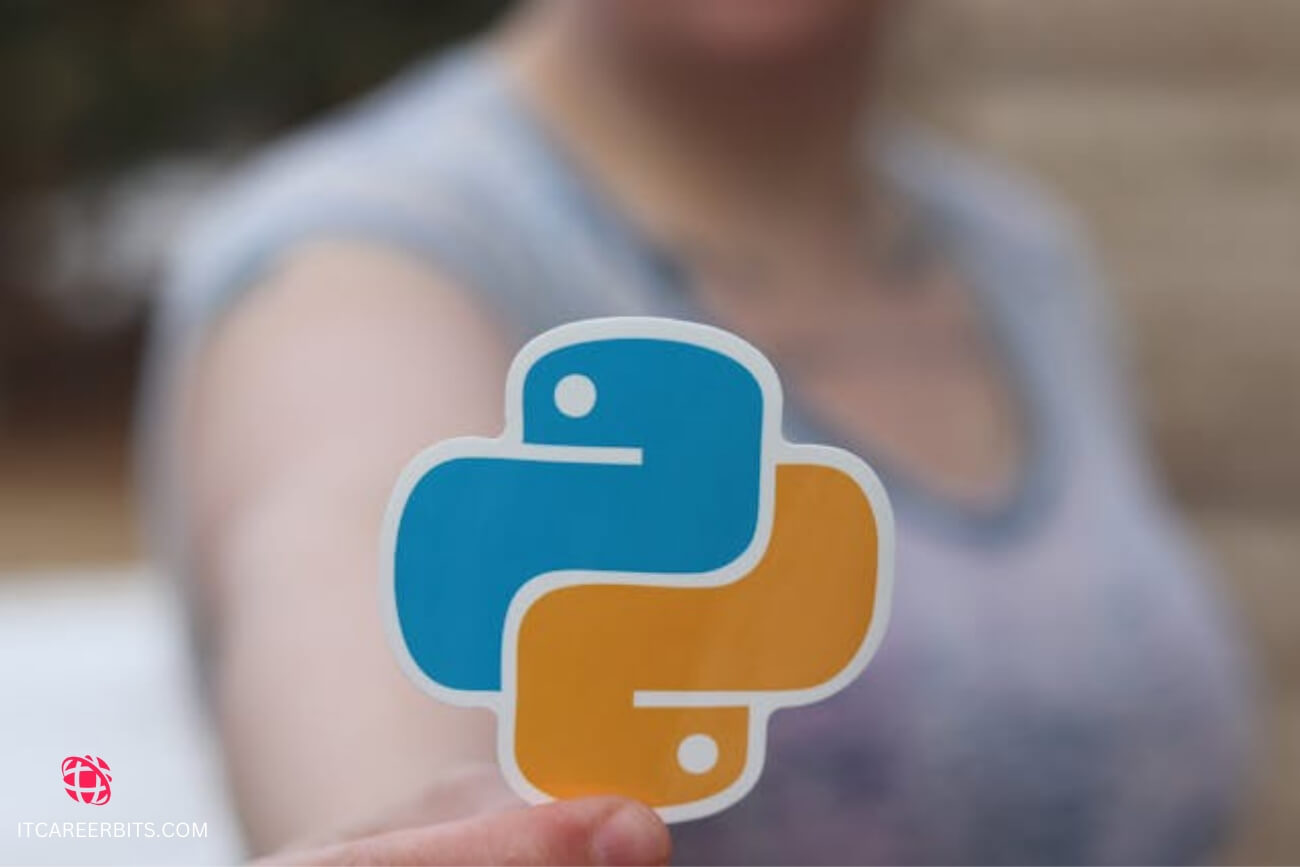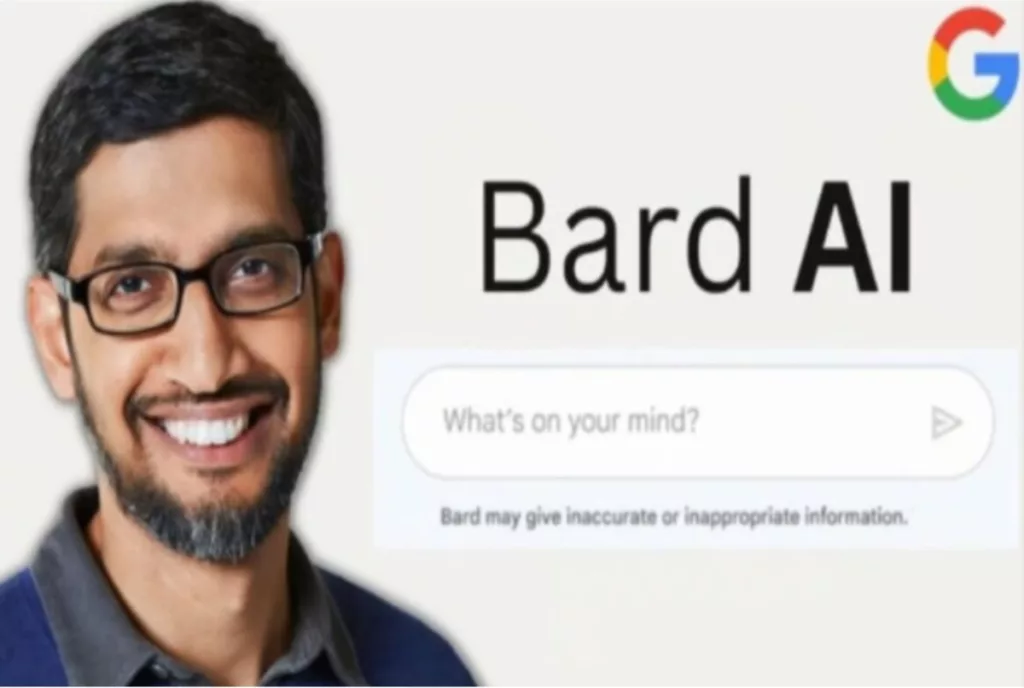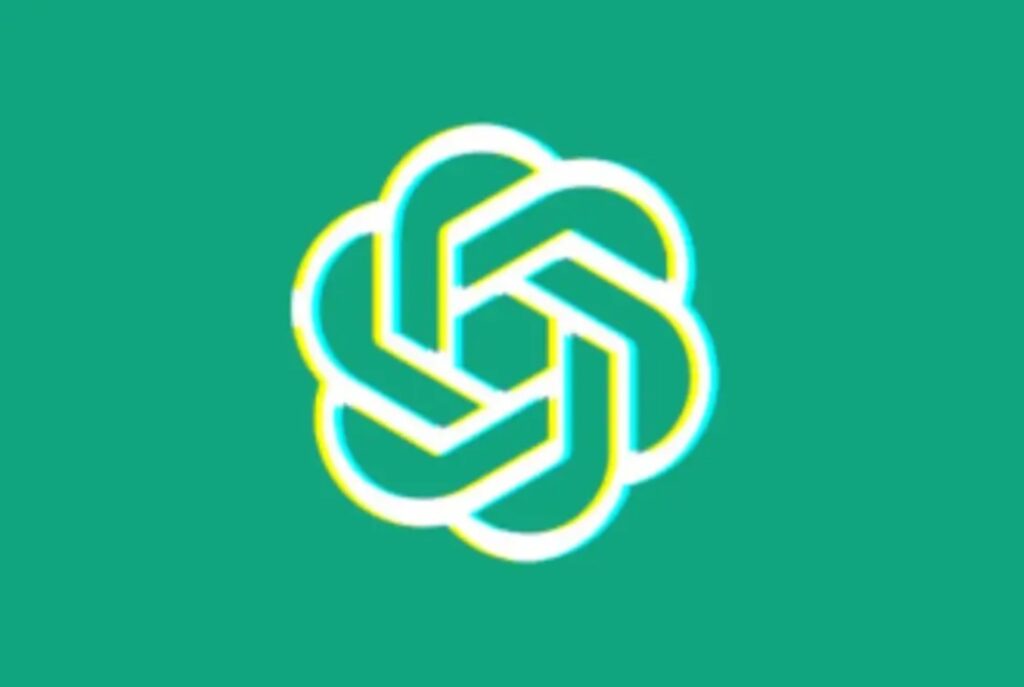Introduction
AI Developers are skilled Software Engineers with skills to incorporate some Artificial Intelligence skills or Machine Learnings skills into their works.
The IBM AI Developer Professional Certificate is one of the many online courses with the goal of teaching these skills. In this blogpost,, I will share on thoughts on taking the course and the things I think you should know should you decide to take the course.
Some of the specifics of this review will include the following:
- What it is
- Who is it for?
- Review of each of each of the courses
- Duration and Cost
- Some Benefits of the course
- What I don’t Like about the IBM AI Developer Certificate
- Salary and Career Opportunities
- Can you get a job with it?
- Is it recognized?
- Is it worth it or should you take the Certification
What is the IBM AI Developer Professional Certificate?
The IBM AI Developer Professional Certificate is an entry-level certification for skills building AI-powered chatbots and applications. The fully online and offered through the Coursera learning platform.


One of the beautiful things I like about this certification is the fact that it taught by the IBM Skill network team which give it industry credibility as IBM is a leading vendor in AI technology.
Like other IBM AI certifications, this certification is made of collection of smaller independent courses covering different areas of technology.
The Certification covers a range of topics from Software Engineering, Web Development, Programming languages like Python, Libraries and Framework (Flask), Generative AI.
You will get a lot of hands-on practical demonstrations, create some AI tools for real world practical tools.
Who Is the IBM AI Developer Certificate for?
The Certificate is geared towards beginners who want to develop skills in AI Development. You do not necessarily need to have a technical background. Much of what you need are taught in the course – including basic programming skills in Python and Flask.
However, the final two component courses in the certification builds on having some foundations in Software Engineering and Artificial Engineering. These will be suitable for those who want to advance their Software Engineering/AI skills or career.
Review of each of each of the courses
There are 10 courses that make up the IBM AI Developer Professional Certificate.; the list of these courses are as follows.
- Course 1: Introduction to Software Engineering
- Course 2: Introduction to Artificial Intelligence (AI)
- Course 3: Generative AI – Introduction and Application
- Course 4: Generative AI : Prompt Engineering Basics
- Course 5: Introduction to HTML, CSS and Java Script
- Course 6: Python for Data Science, AI and Development
- Course 7: Developing AI Applications with Python and Flask
- Course 8: Building Generative AI-Powered Applications with Python
- Course 9: Generative AI: Elevate your Development and Career
- Course 10. Software Developer Guide and Interview Preparation
Below are the overview of what you will learn in each of the courses that make up the certification.
Course 1 : Introduction to Software Engineering
The introduction to Software Engineering is a part of several other IBM Certifications (including Certs like the IBM Full Stack Software Dev. Cert., IBM Front-End Development Certificate, Applied Software Engineering Certificate etc.).


It is a basic introduction to Software Engineering, a collection of skillsets that will be relevant to your AI developer certification and career. The course duration is 14 hours.
In this course, you will learn this fundamentals of Software Development; And be able to (upon completion)
- Describe Software Engineering
- Identify tools and technologies for Software Development
- Compare Languages and and recognize basic constructs
- Outline approaches to Architectures, Designs and Patterns in Software Development
- Review skills and describe career options in Software Engineering.
The course has 6 modules and are as follows;
- Module 1: The Software Development Lifecycle
- Module 2: Introduction to Software Development
- Module 3: Basics of Programming
- Module 4: Software Architectures, Designs and Patterns
- Module 5: Job Opportunities and Skillsets in Software Engineering
- Module 6: Final Activities and Quiz
The course has good contents in teaching you the basic introduction.
What I don’t like about the course is that lesson is a computer-generated voice and infographics, rather than a human one-on-one interaction.
This may not be a problem to many people but I personally prefer seeing a human face speaking to me. I relate better that way.
Course 2: Introduction to Artificial Intelligence (AI)
This course is serves as an introduction to AI, irrespective of your background. It has 4 modules and the total course duration is about 8 hours.
What you will learn in this course are as follows;
- Knowing the definition of AI
- Descriptions, examples, applications and impact of AI
- Listing Generative AI and some of its use cases
- Explain an Interactive AI App.
The course module include the following;
- Module 1: What is AI? Applications and Examples
- Module 2: AI Concepts, Terminology and Applications Areas
- Module 3: AI: Issues, Concerns and Ethical Considerations
- Module 4: The Future wit AI, And AI in action.
Course 3: Generative AI – Introduction and Application
This course serves as an introduction to Generative AI – i.e., Artificial Intelligence algorithms that can be used to create new contents such as text, image, video, audio from an input.


What you will learn in this course are as follows;
- Describe the capabilities of Generative AI, and its use cases in a real world environment
- Identify the applications of Generative AI in different sector and industries
- Explore common Generative AI models and tools.
The course module are as follows;
- Module 1 : Introduction and Capabilities of Generative AI
- Module 2: Applications and Tools of Generative AI
- Module 3: Course Quiz, Project and Wrap-up
Course 4: Generative AI : Prompt Engineering Basics
Prompt Engineering deals with refining inputs into a Generative AI service for optimal results. This course covers the basics. It teaches you to leverage prompt Engineering techniques and unlocks its full potentials in generative AI tools like chatgpt.
The course material consists of concept video, reading, hands-on lab and final project.
You will learn the following in this course:
- Explain the concept and relevance of Prompt Engineering
- Apply best practices for creating prompts
- Apply common Prompt Engineering Techniques and Approaches for writing effective prompts
There are 3 modules in the course, these are;
- Module 1: Prompt Engineering for Generative AI –
- Module 2: Prompt Engineering – Techniques (Interview pattern, Chain-of-though, Tree-of-thought) and Approaches (Zero-shot, Few-shot)
- Module 3 : Project and Wrap-up
The narration is done by a human voice, which adds to a better user experience.
Course 5: Introduction to HTML, CSS and Java Script


This course is an Introduction to Web Development and Environment. The contents are very basic. You will learn
- To describe the Web Development ecosystem and terminologies
- Basic HTML and CSS, and how to use them to create web pages
- Identify the developers tools and IDEs used by Web Developers
- Basic JavaScript and how to use them to build interactive web pages
The course modules are as follows;
- Module 1: HTML Overview
- Module 2: CSS Overview and HTML5 Element
- Module 3: JavaScript Programming for Web Application
- Module 4: Career opportunities and Final Project.
Course 6: Python for Data Science, AI and Development
This course is a fast track course to learn Python. Python is the most popular programming language for Data Science and AI development.
This is a excellent course I would recommend, if you are just starting out to learn Python. It taught directly by Joseph Santarchangelo – not a computer generated voice.
You will learn the following in this course;
- Learn Python Basics
- How to use Python libraries like Pandas and Numpy and develop codes using Jupyter Notebooks
- How to access and web scrape data using APIs and Python libraries like Beautiful Soup.
- Apply Python programming logic Variables, Data Structures, Branching, Loops, Functions, Objects & Classes
The modules are
- Module 1: Python basics (Types, Expressions, Variables and String Operations).
- Module 2: Python Data Structures (Lists, Tuples, Dictionaries and Sets)
- Module 3: Python Programming Fundamentals (Conditions, Branching, Loops, Functions, Classes, Objects)
- Module 4: Working with Data in Python (APIs and Python libraries like Numpy and Pandas).
- Module 5: API and Data Collection
Course 7: Developing AI Applications with Python and Flask
This course is designed to teach you how to apply basic Python skills in developing AI-enabled applications. Flask is a Python micro-framework with minimal to no dependencies on external libraries.


You will learn in this course the following;
- Steps and processes involved in creating an application
- Create Python modules, run unit tests and package applications
- Deploy Applications to the web using Flask
- Use Watson AI libraries and Flask to build and deploy applications to a web server.
The course module include the following;
- Module 1: Python coding practices and packaging concepts
- Module 2: Web Application Deployment using Flask
- Module 3: Creating AI applications and deploying using Flask
Course 8: Building Generative AI-Powered Applications with Python
Generative AI models is the underlining technology behind Chatbots, Virtual Assistants etc. This course is focuses on developing Applications and Chatbots for a specific use-case.


You will learn
- Core concepts on Generative AI models
- Use Python libraries like Flask and Gradio to create web applications that react with Generative AI models
- Build Generative AI- Powered Applications and Chatbots using Python, different frameworks and AI models
- Integrate LLM into Apps and Chatbots using RAG
There are 6 projects captured in the course and are discussed in the different models of the course. The modules are as follows;
- Module 1: Image Captioning with Generative AI
- Module 2: Create your own Chat-GPT-like website
- Module 3: Create a Voice-assistant
- Module 4: Generative AI-Powered Meeting Assistant
- Module 5: Summarize your private data with Generative AI and RAG
- Module 6: Babel Fish (Universal Language Translator) with LLM and STT TTS
- Module 7 : Build an AI Career Coach
Course 9: Generative AI: Elevate your Development and Career
In this course, you will explore more into using Generative AI for software development. Generative AI certainly can help you better generate codes and detect bugs as a few of its application in software development.
In this course, You will learn the following:
- Using Generative AI models to generate code snippets, scripts and programs
- Developing innovative solutions using Gen AI-powered tools and models such as the Watsonx Code Assistant, ChatGPT, GitHub CoPilot and Google Gemini
- Ethical considerations using Generative AI and solutions to mitigate against them
- Applying techniques for application design and architecture, bug detection, code refactoring, and program optimization using generative AI
The course module are as follows;
- Module 1: Generative AI and Software Development
- Module 2: Generative AI for Software Development Workflow and its considerations
- Module 3: Final Project and Final Exam
Course 10. Software Developer Guide and Interview Preparation
After completing all the prior courses in the IBM AI Developer Professional Certificate bundle, this course is then designed to you get a job with the skills you have gained.
To help you better understand the real-world work of software developer or as an AI developer.
There are three modules in this as course as follows;
- Module 1: Building a foundation
- Module 2: Applying and preparing for Interview
- Module 3: Interviewing
Duration of the IBM AI Developer Certificate


Although Coursera and IBM put the time of completion for the IBM AI Developer Certificate to be 6 months, however, most persons I know and sampled online were able to complete the entire course in 3-4 months. This was based on a 1-2 hours per day study schedule.
The most time-consuming of the courses was Course 6: Python for Data Science, AI and Development (25 hours), especially if you had no prior knowledge of Python.
Overall duration of all the 10 courses is about 122 hours.
Cost of the IBM AI Developer Certificate
The Cost of the Certification is the cost of your monthly subscription to Coursera. If you like in the US/Canada, this comes down to $49 per month.
The overall cost of you taking this Certification will be dependent on how long you take to complete the certification.
There are also other options such using the Audit option and applying Financial aid for those that are eligible (HOW TO GET COURSERA CERTIFICATE FOR FREE). The table below is summary.
| USA/Canada | United Kingdom (UK) | Africa | |
|---|---|---|---|
| 1 month | $49 | £47 | $39 |
| 2 Months | $92 | £94 | $78 |
| 3 Months | $147 | £141 | $117 |
| 4 Months | $196 | £188 | $156 |
| 5 Months | $245 | £235 | $195 |
| 6 Months | $294 | £282 | $234 |
Salary and Career Opportunities
This is an entry-level certification to equip you with skills to work as an AI Developer. While this alone may not be enough to land you a job as an AI Developer, it does enhances your chances significantly.


You will typically be looking for junior or entry-level positions with this Certification (unless you are already an established Software Engineer who just want to bump up their skills in Generative AI).
The average salary for an AI Developer in the US is about 130K per year (according to Glassdoor). This is comparable to other AI jobs like ML Engineer, ML OPS Engineer etc.
Benefit of the IBM AI Developer Professional Certificate
Some of the benefits of taking the IBM AI Developer Professional Certificate as follows;
1. Industry Recognition
IBM is a leading and globally recognized Technology brand. In a competitive job market, you want to go with a body that is easily recognized and accepted by recruitment managers for AI jobs.
2. IBM Tools and Technologies
IBM has developed its own tools and technologies that you will have access to by taking this certification. Example of this is the IBM Watsonx studio or the IBM Watson Libraries.
You also get access to a lot of documentations and reference materials within the IBM training resource to further enhance your understanding of Generative AI technologies.
3. Practical Skills
Unlike many AI Courses, you actually get a lot of hands-on practical labs to enhance your skills. You will learn to build your own chatbots and virtual assistants to solve real-world problem. This is one of the main thrust why I may recommend this Certificate.
4. Cost
The cost of getting this certification is cheap relative to what you will typically pay for a University degree or some Bootcamps. Not that this is a replacement for a university degree, but it does equip you with skills that are useful for a career in AI Development.
5. Shareable Certificate From IBM
You get a certificate from IBM upon completing the certification courses. You can share this online, including on your LinkedIn profile to prospective employers. This validates your skills in AI Development and increases your chances of landing a job.
What I don’t Like about the IBM AI Developer Certificate
Here are a few things I would wish were better about the IBM AI Developer Certificate
- Many of the courses have this computer voice narration which some persons may also find annoying (including me). I prefer listening to human tutor.
- Some of the courses in my opinion are not too basic. For example, Course 5: Introduction to HTML, CSS and Java Script. You will really do not learn anything meaningful here with practical application.
- This certification alone may not prepare you for a job as an AI Developer. Many of the content is very basic.
Can you get a job with it?
Getting a job in with any Certificate is a combination of several factors including your non-technical skills. This certificate does teach you a lot of skills for AI Development Job role or similar. It enhances your chances of getting a job. I don’t think you can however get a job with just this certificate, you need more.
Is the IBM AI Developer Professional Certificate recognized?
Yes, the certificate is an Industry-recognized certification for a AI related job roles. IBM is one of the big tech with a significant investment in AI. They also have their own AI technology and tool like the IBM Watson libraries.
They are also recognized for providing quality education and training for Tech career.
Is it worth it or should you take the Certification
There is so much value you can get from taking the IBM AI Developer Professional Certificate especially if you are a beginner. It helps you get the foundational knowledge to pursue a career in AI Development, broaden your understanding of Generative AI.
The Certificate is shareable and can increase your chance of getting a job. And if you are already have some background in Software Engineering, the Certification is a great way to incorporate some Generative AI skills into your skillset.




